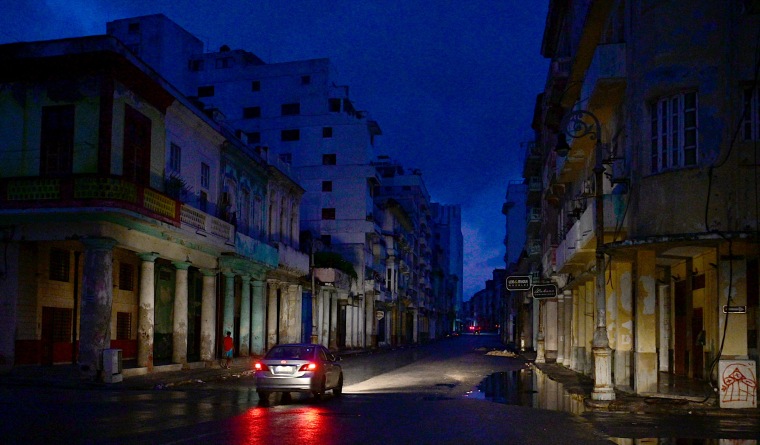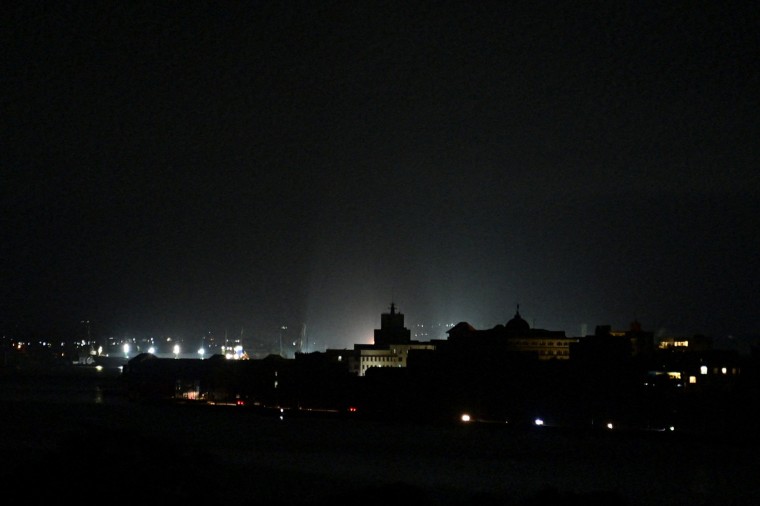HAVANA – Some progress has been made in restoring power across Cuba, but the power grid went down twice in 24 hours, leaving much of the island in the dark on Saturday.
The first blackout hit the entire island around 11 a.m. on Friday after its biggest power plant, Antonio Guiteras Thermoelectric, went down. Nearly 10 million Cubans were left in the dark.
While power was restored, another total blackout occurred around 6:15 a.m. on Saturday, threatening many people across the country.
Amid the repairs, Hurricane Oscar formed off the coast of the Bahamas, prompting the Cuban government to issue a hurricane watch for the eastern provinces of Guantanamo, Holguin and Las Dunas.
There were few cars on the streets of the capital Havana on Saturday. Traffic lights are not working. Many of the items in the fridge were now spoiled and people were scrambling for food. A limited number of shops were opened. Some government shops opened without electricity, while some privately owned shops operated with a few generators.
In the capital’s upscale Vedado neighborhood, the government opened an open-air market in a park on Saturday with agricultural produce, including root vegetables, rice and some vegetables.
In Old Havana, residents expressed frustration and concern over the situation.
Alexia de la Cruz, standing outside her home, said, “I pray that this is resolved as quickly as possible because it is intolerable. The situation has gotten worse.”
His neighbor, Luis Utria, said, “The situation is unbearable. It’s almost explosive.”
Others pointed to political solutions to Cuba’s current problem with blackouts.
“We can solve this problem by making an agreement with our closest country. [the U.S.] We don’t want to be friendly or make any concessions,” said a 74-year-old man who declined to be named.
Power outages in Cuba have been ongoing for years and have worsened in recent months.
Before Friday’s collapse, the government had tried to avoid a total blackout by closing schools and keeping most state workers at home to conserve energy, but it wasn’t enough.
The communist-run country’s aging and crumbling infrastructure requires constant maintenance, and the government has often blamed the decades-long US embargo on Cuba for making it difficult to import parts.

The government has cited rising energy demand and a shortage of fuel used to power its plants as reasons for the persistent blackouts. In some provinces outside the capital Havana, many are struggling with power outages that can last up to 20 hours at a time.
In a state-run news broadcast Friday night, President Miguel Díaz-Canel said no one would rest until electricity service was restored. He blamed the U.S. embargo on Cuba because Cuba lacked the fuel and hard currency it needed. He warned that after power is restored, power outages will continue across the country.
Cuban Foreign Minister Bruno Rodriguez reiterated that message on Saturday X. He said the damage caused by the outage in 18 days was equivalent to “the annual cost of maintaining the national power system”. He said that if the ban is removed, there will be no blackout. “The U.S. government can support the Cuban people if it wants to…

Cuba is in the midst of an economic crisis fueled by tough US sanctions under former President Donald Trump’s administration and the devastating effect the epidemic has had on the island’s tourism, one of the government’s most lucrative sources of revenue.
With a state-dominated economy largely dependent on imports and a lack of hard currency, Cubans face shortages of food, medicine, water and fuel.
Oil supplies were cut sharply after Cuba’s ally Venezuela, a major oil supplier, cut back on shipments to the island. Other countries that have supplied oil in the past, such as Russia and Mexico, have also seen lower exports.
Cuba’s economic crisis has spurred mass immigration. According to the country’s National Statistics Office, more than one million people, or 10% of Cuba’s population, will leave the island between 2022 and 2023.
Orlando Matos reported from Havana and Carmen Sesin from Miami.